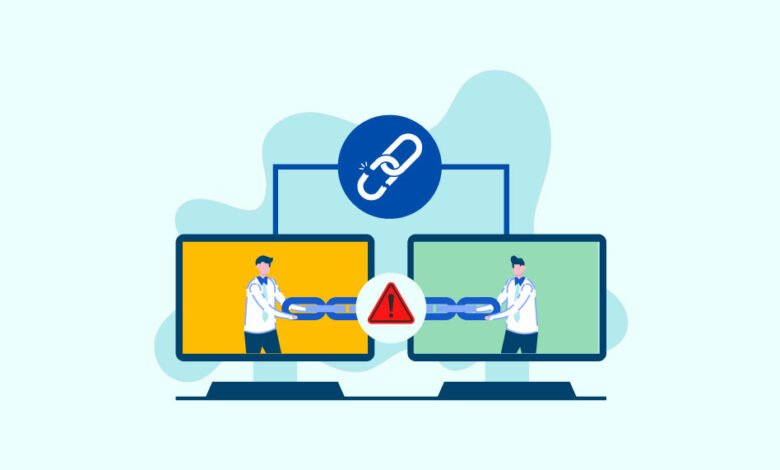Avoiding SEO Link Building Pitfalls

In the ever-evolving world of search engine optimization (SEO), link building remains one of the most impactful strategies for boosting website rankings. Links from other websites act as endorsements, signaling to search engines that your content is valuable and trustworthy. However, this process can be fraught with challenges and risks. Rather than wonder, “how many backlinks do I need,” instead focus on avoiding mistakes. Missteps in link building can harm your site’s reputation and even lead to penalties from search engines. To navigate this terrain successfully, it’s essential to understand common pitfalls and how to avoid them. This article outlines practical strategies for building links the right way, ensuring long-term SEO success.
The Danger of Low-Quality Links
One of the most significant mistakes in link building is prioritizing quantity over quality. Low-quality links, often purchased from shady providers or placed on spammy websites, can backfire dramatically. While it may be tempting to acquire hundreds of links quickly, search engines have become adept at identifying and penalizing manipulative practices. Links from irrelevant or low-authority sites send a clear signal that your site is engaging in black-hat SEO techniques. Instead, focus on earning links from reputable websites that align with your niche. A single high-quality link can be far more impactful than dozens of poor-quality ones.
Over-Optimized Anchor Text
Another common pitfall is over-optimized anchor text, which involves repeatedly using exact-match keywords as the clickable text in your links. While it may seem logical to emphasize target keywords, search engines view this as a red flag. Google’s Penguin algorithm, in particular, targets sites with unnatural link profiles. To avoid this, aim for a diverse and natural anchor text strategy. Use a mix of branded terms, generic phrases, and relevant keywords. This not only helps your site appear more organic but also improves the overall user experience by providing context for the links.
Ignoring Relevance and Context
Relevance is a cornerstone of effective link building, yet many SEO practitioners overlook it in their quest for quick results. Acquiring links from unrelated websites or content can dilute your SEO efforts and confuse search engines about your site’s purpose. For instance, a travel blog receiving links from a plumbing website is unlikely to yield positive results. Instead, strive to build relationships with sites in your industry or related niches. Guest blogging, content collaborations, and networking with industry influencers are excellent ways to secure relevant, high-value links.
Neglecting Content Quality
High-quality content is the foundation of successful link building, yet it’s often underestimated in favor of aggressive outreach tactics. If your content doesn’t offer value, no amount of outreach will convince reputable sites to link to it. Focus on creating informative, engaging, and original content that resonates with your audience. Infographics, comprehensive guides, and case studies are particularly effective at attracting links. When your content is genuinely useful, other websites will naturally want to reference it, reducing your reliance on artificial link-building strategies.
Failing to Monitor and Audit Links
Even with the best intentions, it’s possible to accumulate harmful links over time. Competitors might engage in negative SEO campaigns, or outdated strategies may leave your site vulnerable. Failing to monitor your backlink profile can result in penalties or a decline in rankings. Regularly audit your links using tools like Google Search Console, Ahrefs, or SEMrush to identify and disavow harmful backlinks. Proactively managing your link profile ensures that your site remains in good standing with search engines and maintains its SEO momentum.
The Importance of Patience in Link Building
Link building is not a process that yields immediate results, and impatience can lead to costly mistakes. Many site owners fall into the trap of seeking shortcuts, such as buying links or engaging in link exchanges, in an attempt to expedite progress. However, these tactics often do more harm than good in the long run. Building a strong, natural backlink profile takes time and consistent effort. Focus on cultivating genuine relationships within your industry, creating shareable content, and earning links organically. Patience not only ensures compliance with search engine guidelines but also builds a foundation for sustainable growth and long-term success in SEO.
SEO Link Building
Link building is a critical component of any successful SEO strategy, but it’s not without its challenges. By steering clear of pitfalls like low-quality links, over-optimized anchor text, and irrelevant sources, you can build a robust and sustainable link profile. Prioritizing high-quality content and regularly auditing your backlinks will help you stay ahead in the competitive digital landscape. Remember, SEO is a long-term game, and the rewards of ethical link-building practices far outweigh the risks of shortcuts. Stay committed to best practices, and your site will enjoy lasting success in the search engine rankings.



